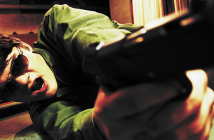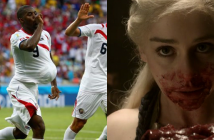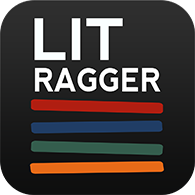Editor’s Note: This is Part II of our series on crime fiction for readers who don’t “do” crime fiction. You can find Part I here.
Last week I said: question everything you think you know about crime fiction.
This week, I’m going to introduce you to four writers who question everything you think you know about the way we live. They take nothing for granted. They don’t judge and they’d prefer you don’t either. All they give us (because they’d want it to sound like it’s no big deal) is the Truth. No small task.
Dennis Lehane
 The third part in my Wire writers trifecta, the drunken poet of the Boston streets with clenched fists and a bleeding heart. His 1994 Shamus award-winning debut A Drink Before the War turned the P.I. genre on its head: the narrator Patrick-never Pat-Kenzie is a private investigator but not an ex-cop or ex-anything (before this it seemed as if any fictional P.I. had to be a former police by federal law), with intimate, ground-level knowledge of his south Boston neighborhood, rage issues stemming from his publicly adored and privately abusive firefighter father, and a stubborn terrier-with-a-rat penchant for saving lost souls and exposing corruption at its highest levels.
The third part in my Wire writers trifecta, the drunken poet of the Boston streets with clenched fists and a bleeding heart. His 1994 Shamus award-winning debut A Drink Before the War turned the P.I. genre on its head: the narrator Patrick-never Pat-Kenzie is a private investigator but not an ex-cop or ex-anything (before this it seemed as if any fictional P.I. had to be a former police by federal law), with intimate, ground-level knowledge of his south Boston neighborhood, rage issues stemming from his publicly adored and privately abusive firefighter father, and a stubborn terrier-with-a-rat penchant for saving lost souls and exposing corruption at its highest levels.
But the even more dramatic departure is Patrick’s partner and lifelong pal Angie Gennaro, who I feel confident saying is unlike any other woman in all of crime fiction, and possibly fiction in general. Even Lehane’s “whacky” characters, like Angie and Patrick’s lifelong friend Bubba–a former Marine who literally grew up on the streets, was homeless till age eight, and makes his bread as an arms dealer living in an abandoned warehouse with dynamite booby traps in the floorboards–have the hard sheen of reality. I know that doesn’t sound like it could possibly be real, but then again that’s what a truly great writer does–brings the unreal to life, fills out two-dimensional bags of bones into flesh and blood humans, spins straw into gold.
Lehane’s books, the six Kenzie/Gennaro books, stand-alones like the masterful Mystic River and the first two books of his Coughlin family trilogy The Given Day and Live By Night (part three coming next year) are about family and the relationships between people, and chronicle the myriad ways they can go wrong and right (the latter much less often). His work pits the great philosophical questions we all must ask against the violence, rage, hatred and misery of the great Underworld that is our baser instincts, and when he brings them together they collide with astonishing force.
Michael Connelly
Michael Connelly: Hieronymous “Harry” Bosch is an orphaned, Vietnam tunnel rat, L.A. riot veteran cop combing the darkest corridors of the American dream (aka Hollywood) to satisfy his never-ending mission: when it comes to homicide, everybody counts or nobody counts.
With the possible exception of Richard Price, Connelly is the most procedure-driven writer on this list, but that’s only because he’s the only one who writes (at least in the Bosch series) exclusively about an active-duty police officer. In the books from the past decade or so Bosch has worked on the LAPD’s Open Unsolved Unit, unofficially known as the cold case squad, and it has proven to bea vein both deep and rich for Harry and Connelly.
Following in the hard-boiled L.A. noir footsteps of Chandler and others, Connelly shows us the highest of highs, the lowest of lows, and people from all different walks of life. What sets Connelly apart from the many other writers who specialize in police procedurals, and they are legion, is his devotion to character and an evocative, detailed sense of place that’s both spiritual and geographical. His characters are not just realistic but real, never used as simple plot devices, and while he does chronicle their weaknesses, their flaws, their worst predilections, he often allows us the context for understanding, and in nearly every case some small amount of sympathy.
Connelly is never sensational in his work; there are occasionally serial killers or race riots or high profile media circus cases but usually he’s about the banal horrors and quietly unfathomable complexities of everyday life. Indeed, even the multi-murderers and riots and O.J. Simpson-like debacles always seem to come from small people with small lives and simple desires and what Bosch calls “the ripple effect” of their actions. Bosch, like his Renaissance master namesake, is haunted by the darkness lurking in all of us, not just “criminals”. The very notion of a criminal as someone separate and somehow different and apart from the rest of us is debunked.
Andrew Vachss
Andrew Vachss: thirty years ago, while he was trying to get published, editors told Vachss (rhymes with “tax”) his work was too violent and irresponsible in its portrayal of child abuse (physical, mental and sexual, done by parents, relatives, family friends, legal guardians, strangers and profiteers among others) as commonplace, widespread, and oft-ignored. Same went for his depiction of the criminal life in and out of jail. Twenty-five or so years ago, to use a more specific but much more telling example, most critics, readers and law-enforcement types who should’ve known better scoffed at the idea of pedophiles trading child pornography through their computers, via the phone lines of all things. In these and so many other instances, Vachss tells the truth, but as opposed to my earlier statement about all good crime fiction, his truth-telling is often of a less metaphoric variety, unblinking and unflinching authenticity gleaned from hard (very hard) won experience. Much of the time, he recounts simply what actually happened, the names changed not to protect the innocent (because even the victims are no longer that, sad to say) but to slap readers in the face and, maybe, make some headway in protecting the future innocent. He fights the only Holy War worthy of the name, and the struggle is best portrayed in his Burke series.
Burke and his Family of Choice, the one with bonds deeper than blood, are all Children of The Secret, those abused and victimized by the system, those within it and the system itself, and have never experienced justice. As he has said they don’t all fight under the same flag but Burke, Mama, the Mole — a Nazi-hating junkyard-dwelling psychopathic off-the-charts genius–Michelle, a transgender ex-prostitute who’s more of a lady in nearly every way than most genetic “women,” The Prof (short for either the professor or the prophet depending on his mood), Max the Silent, and too many other once in a lifetime characters to name, all come out for the same, dark show.
They’re on The Street, capital letters intended, not just the asphault where cars run, but the hard pavement where scams and hustles flow like a poison river, where you can fuck the system for once and, maybe, avoid being fucked by it. They are forcibly stuck there, sure, but they stay by choice. “Down where we live,” Burke says in 1988’s Blue Belle, “every day is a rainy day.”
James Ellroy
 Ah, The Demon Dog. My favorite on this list and one of my favorite writers of all time. He got into The Life early, his mother murdered when he was ten, and the crime still unsolved. I saw him speak once. He said his heroes were Beethoven, Martin Luther, and Martin Luther King, Jr. When asked why, he responded (I paraphrase but I know this is close): when faced with all those men accomplished, how can we dare falter? This is a man of staggering vision and ambition, and damned if he doesn’t live up to it.
Ah, The Demon Dog. My favorite on this list and one of my favorite writers of all time. He got into The Life early, his mother murdered when he was ten, and the crime still unsolved. I saw him speak once. He said his heroes were Beethoven, Martin Luther, and Martin Luther King, Jr. When asked why, he responded (I paraphrase but I know this is close): when faced with all those men accomplished, how can we dare falter? This is a man of staggering vision and ambition, and damned if he doesn’t live up to it.
All his work is compelling, but he really hits his stride with The Black Dahlia (1987), fictionalizing the famous real life slaying of actress Elizabeth Short in 1947 Los Angeles. From there, he wrote the rest of his L.A. Quartet (The Big Nowhere, L.A. Confidential, and White Jazz). His next fiction was called The Underworld U.S.A. trilogy: American Tabloid, The Cold Six-Thousand, and Blood’s a Rover.
Popular opinion varies on which is his best, but I go with the Underworld trilogy, and Six-Thousand specifically, though the Quartet is so, so good. All seven books are in loose chronological order, covering 1947-1973, first in L.A. and then across America and the world, focusing on loosely-related characters, some who had been minor characters earlier and others who go on to play supporting roles later. If they survive. Many do not. The books seamlessly blend fact and fiction, where real life people and events mix with the fabrications of Ellroy’s malevolent imagination.
His books are about fear. Fear of the Other: the other gender, other races, other political ideologies, other sexual preferences of all stripes, people with different moral codes, different vices, different priorities. Fear of yourself, what you’re capable of, what’s hiding inside you buried deep. Fear of History, the way the past keeps rolling back on the present, the way events and lives cohere into a bloody, terrifying outcome.
American Tabloid, Time magazine’s #1 book of 1995, shows us JFK as a compulsive philanderer who’s also a callow, power mad one-minute man, Jimmy Hoffa butchering an informant with a machete, J. Edgar Hoover cooly orchestrating EVERY mind-meltingly depraved atrocity of the era with only a telephone and a talent for extrapolation as well as dozens of brutal, barbaric shakedowns, beatings and slayings…and then on page fifty-one it gets so much worse. At the center of the story live three men, two FBI agents and an L.A. knockaround guy who kills without compunction (at first) and dishes the best dirt in town, and their stories intertwine with each other until an explosion they’re all, willingly or not, party to.
The sequel, The Cold Six Thousand, begins seconds after Tabloid ends in Dallas, just past noon, on 11/22/63. Yeah, you know what day that is. That’s the explosion, and it makes the earth shake. From there it spins into Vegas, the heroin trade in Vietnam, and a pair of well-known 1968 political assassinations that blow everything up once again.
Ellroy has begun the second L.A. Quartet, four novels set between the onset of WWII and 1947 or so that use many of the characters from the original Quartet and the Underworld USA trilogy. The first installment, Perfidia, drops in September. Once they’re all out we can combine all eleven into one giant, cohesive mega-novel covering thirty-plus years of America’s dark places, a voyeuristic window peep into our hidden, hideous, and hideously plausible history, as told by bad men and women doing terrible things for love, survival, redemption, and vengeance. Ellroy, in typical self-aggrandizing fashion, calls himself the Tolstoy of crime fiction.
The thing is, though, he just might be.







